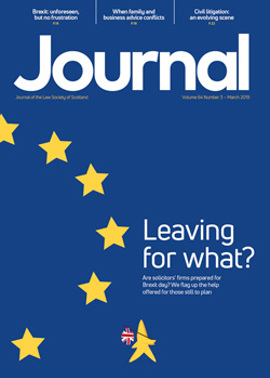Chain transactions

What is blockchain?
For those of us that have followed the growth of cryptocurrency this decade, blockchain is inevitably associated with bitcoin. However, bitcoin is merely one example of blockchain technology.
In its simplest form, blockchain consists of a number of individual, unique blocks, linked together in a public database (hence “the chain”). Each block permanently and publicly records a step in a transaction between two or more parties. Every block contains three elements, comprising: (i) the details of the transaction including, for example, the date and time of the transaction; (ii) the parties to the transaction; and, (iii) a unique “hash” code – that is, a code to distinguish one block from the next. The nature of blockchain means that it is a decentralised method of exchange that is secured by encryption, making it more secure and more difficult to hack. There is no need for a third party to process any transactions, which can render a bank redundant in a transaction. Each computer in a blockchain transaction network will have identical copies of the blockchain.
Taking bitcoin as an example, there are millions of computers showing the same blockchain. This means that the information, being spread across so many computers, is extremely difficult if not impossible to tamper with.
Due to such security and ease of application, we are beginning to see a rise in blockchain’s application. In New York, for instance, investment companies are already beginning to “tokenise” commercial buildings, meaning that anyone can buy a share of the property. The process is much the same as purchasing shares in a company, but in a building instead. This allows property owners to generate capital quickly and at very little cost, and allows shareholders to own a share of the property in exchange.
While blockchain is probably most closely associated with bitcoin, its use is not limited to monetary transactions. In fact, most people say that cryptocurrency is just tapping into the potential of blockchain. For example, it has been trialled in recent elections in the USA in a drive to eliminate voter fraud. Its use in “smart contracts” could have a revolutionary impact on the way in which legal business is undertaken. Research by Deloitte has indicated that 34% of companies it surveyed have some system of blockchain in place today, with at least 40% planning to invest heavily in the next five years.
Is it advantageous?
The decentralised nature of blockchain means that the information it holds is more difficult to tamper with. This should lead to transactions that are more efficient; it removes the need for a central authority authorising every transaction. Take a bank, for example, where there can often be delays between depositing money and actually being able to utilise the deposit. Blockchain could be a quicker alternative.
Each blockchain transaction relies pretty much exclusively on computers, removing a great deal of risk that could arise in transactions involving humans. The computerised nature of blockchain means that users are identified only by their “public key”. While blockchain tends to be a public network, it retains a degree of anonymity for users that other institutions, such as banks, cannot guarantee. This is done by maintaining the anonymity of the parties involved, thus meaning that, while the transactions are always publicly available for reasons of transparency, there will be practically no way for third parties to identify the parties involved through looking at the block. Furthermore, any alterations that are made to existing blocks will automatically generate a change in the block’s hash code, making it harder for hackers to go unnoticed. Most institutions are recognising such advantages, and are happy to get behind the technology and explore its potential.
Legal sector: disruptive potential
Businesses across all sectors are showing interest in the developing technology, and the legal sector is no different. Blockchain has the potential to tap into every aspect of the legal sector, which is exciting for a whole host of reasons. There are a number of different suggestions for how blockchain could be developed for the sector; if put into place, they have the potential to alter significantly the manner in which legal transactions are carried out.
Smart contracts, in particular, have a number of potential uses. Smart contracts are computer code that is developed and is capable of enforcing an agreement. In a simple form, it is similar to monthly direct debits: pay the direct debit and there is no problem; miss one or two payments and you might expect a letter demanding an explanation or payment.
There is potential for smart contracts to be used to give effect to a number of different things that take place in a contract. In the real estate sector, they might be used to trigger payment of funds once certain conditions have been fulfilled in a property sale or purchase, and arrange for registration of the ownership of the property. Sweden recently began officially using blockchain to register land and property, with the eventual aim of conducting all property sales using the system. Similarly, Dubai aims to have all its properties on blockchain by 2020.
Blockchain oracles (digital devices that can be used in real time to verify information for a smart contract) could be used to give effect to a smart contract. In the area of succession law, such devices could be used to confirm the death of a testator, and used to enable automatic distribution of the estate.
Suggestions about the use of smart contracts in more complex transactions have been touted. The due diligence process that is used in many corporate transactions could be transformed by using blockchain processes. Due diligence is often done in a non-digital way; and work is also often duplicated. A blockchain-based solution could allow for documents to be shared between two parties, and even programmed to trigger further sharing of documents once certain conditions have been triggered. It could be utilised to provide a more efficient and less labour intensive due diligence process, which could make the whole process of corporate transactions more competent. It would provide for a more secure due diligence, limiting the possibility of human error and fraud.
These are just a few examples of the potential blockchain has to disrupt and transform the provision of legal services.
Regulation quandaries
Just as blockchain has unleashed huge potential to disrupt the way we conduct legal business, it also raises numerous legal quandaries.
On a jurisdictional level, the question of which legal framework should apply is at the forefront of current thinking. The likelihood is that it will often entail trans-jurisdictional transactions, which adds an additional layer of complexity. Governments will likely have to figure out how it might fit into pre-existing structures. Most governments at present have indicated that they see no major need for new legal frameworks to be put in place to cater for blockchain. This, though, will likely change when the technology develops to cover off increasingly complex transactions. This would obviously require a great deal of transnational cooperation to ensure that the legal frameworks are broadly similar, and so any major change becomes an issue of international politics, too.
The notion of smart contracts generally can raise complicated legal issues. At the most basic level, it might be debatable whether a smart contract constitutes a contract in any legal sense. If smart contracts are not legally binding (in the legally-understood sense), much of their potential is lost. Once again, lawmakers will have to devise ways in which they can counter these potential problems. Data protection laws would also likely have to be bolstered. With blockchain being a public system, strong laws would have to be in place to protect against potential data breaches, in order to conform with current data protection requirements.
All of the above implications raise broader questions about regulation. Will regulatory authorities, such as the FCA, have to alter their pre-existing rules to facilitate the predicted growth of blockchain? Or, will blockchain generate the need for an entirely new regulatory framework? Governments have not indicated that this is likely yet, but that will probably change once the technology becomes more prevalent and increasingly complex. Will tax laws apply to blockchain transactions, and if so, how?
All the indicators point toward a growing momentum among businesses which are getting on board with blockchain, viewing it as an efficient and practical means to conduct business. Its potential to impact the legal sector seems vast; yet with this come dilemmas. The legal sector is not afraid of a challenge and is constantly evolving, and we are sure it will do the exact same with blockchain.
In this issue
- How will Brexit affect my mother-in-law?
- Settling the debate on sequestration
- Taking wellbeing seriously
- How will personal data continue to flow after Brexit?
- Buildmark, and a little extra help for NHBC
- Reading for pleasure
- Opinion: Laurie Anderson
- Book reviews
- Profile: Lord Mackay of Clashfern
- President's column
- People on the move
- Is your legal software ready to remain compliant in 2019?
- What's the deal?
- Ready to leave?
- A tapering opportunity
- Brexit: no dealbreaker either
- The business of divorce
- Trailblazing 12
- Cohabitants: rebalancing the law
- Litigation: an evolving scene
- Chain transactions
- When delay is not fatal
- Data protection – deal or no-deal?
- Two cases and an order
- Reshaping trade mark law
- When the wheels come off
- Parentage or privacy?
- Access right, right of access or right of way?
- Team of one
- Public policy highlights
- OPG update
- Housing specialism added to accreditation list
- At the boundary's edge
- Keep the dual role
- Executry and trust accounting: new guidance
- Moving nightmares
- Accredited paralegal update
- Sign up for conference
- Accredited Paralegal Committee profile
- Ask Ash






